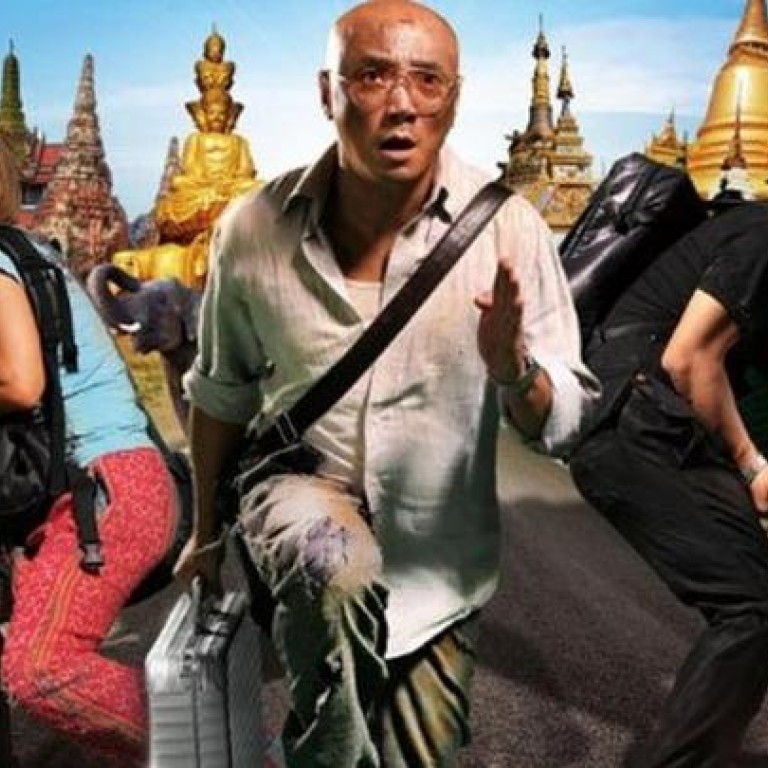
'Lost in Thailand' redefines mainland audiences' tastes in films
The exceptional popularity of 'Lost in Thailand' redefines the tastes of mainland film audiences and spawns reflection about material wealth
As the low-budget comedy continues to expand on its record box-office earnings in the domestic market - having grossed more than 1.2 billion yuan (HK$1.48 billion) since its December 12 debut - debate has intensified as to what makes the movie so appealing.
The film is a travel adventure with Thailand as its backdrop. Scientist/businessman Xu Lang invents a miracle fuel additive, and he flies to Thailand to stop a business partner who wants to sell the invention. Silly Thailand-related hijinks ensue, including mistaking a transgender person for a beautiful woman.
But as the film progresses, Xu finds himself not only lost in Thailand, but lost for direction in his life. He finally realises money is not everything and joins a pancake maker on a simple, but fun trip.
The success of the 30-million-yuan film has shocked the domestic movie industry, normally dominated by big-budget historical epics with large casts.
has left all competitors in its wake, including Ang Lee's . Other big-budget offers that audiences have passed over in lieu of laughs include: , helmed by one of the most popular directors, Feng Xiaogang , and tells the story of 3 million people killed by famine; , starring Chow Yun-fat as a gangster in Japanese-occupied Shanghai in the 1930s; and , which features Jackie Chan trying to retrieve stolen Chinese art.
After watching the 105-minute comedy, an increasing number of movie-goers and commentators have weighed in, with some questioning whether it deserves its popularity.
"The success of is not by chance," said Zhang Yiwu , of Peking University. "Its plot was well-planned and struck a chord with its audiences in urban cities."
Zhang said the main character was meant to showcase the worry and anxiety common among the middle class. These people "are ambitious and push for success and material wealth, while many of them feel confused and tired and even like they are losing themselves. is a very good movie for invoking thought and showing the frailty of urban citizens".
Angel Zhou, a Shenzhen-based sales manager, said: "The movie was like a mirror in which I could see myself. I found that I have been doing exactly what the senior managers in the movie do. Every day I talk with my friends and colleagues about dream houses and millions of yuan, tricks to get ahead and about various material desires."
But in reality: "I just want to be the pancake maker - with goodness and pure and simple dreams," Zhou said. "I laughed loudly while watching the movie, but I found myself crying unexpectedly when the film went on."
Though setting a string of records - the most profitable domestic film yet, the biggest audience turnout in a single day and the first domestic film to rake in more than 1 billion yuan - some politicians criticised it as catering to the lowest tastes in society.
Feng was also disappointed with audiences after his epic, , failed to meet box-office expectations.
His movie cost 200 million yuan and earned about 400 million yuan, far off the 1 billion yuan predicted. It took 10 years to make, as Feng researched the drought from 1942 that killed millions in Henan province.
"I'm not proud of my nation anymore," Feng wrote on his microblog account.
Last year, domestic films made up 54 per cent of box-office receipts, down slightly from 56 per cent in 2010, according to mainland media reports.
"It is hard for a Chinese movie to compete with a Hollywood blockbuster," Shi Chuan , a film reviewer and professor with the School of Film and TV Arts and Technology at Shanghai University, told mainland media.
"But if we have 10 domestic movies like , Hollywood will have to re-evaluate the Chinese film industry. If we have 20 of them, it will no longer be a dream to defeat foreign blockbusters."


